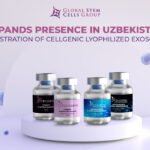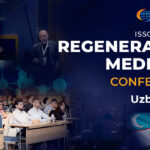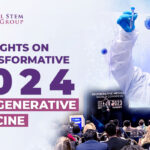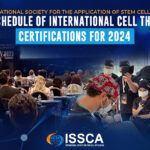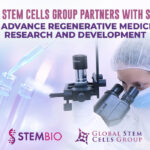Scientists from the U.K. and Sweden have discovered a new method of creating human stem cells that could solve the problem of meeting large-scale production needs, allowing researchers to fully realize the potential of stem cells for understanding and treating disease.
Human pluripotent stem cells are undifferentiated cells that have the unique potential to develop into all the different types of
cells in the body. With applications in disease modeling, drug screening, regenerative medicine and tissue engineering, there is already an enormous demand for these cells, and that demand will continue grow as their use in clinical settings and the pharmaceutical industry increases.
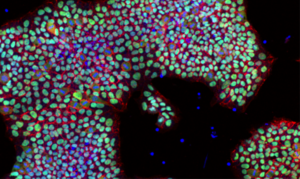
Credit: Dr. Sara Pijuan-Galito and Dr. Cathy Merry, Wolfson Centre for Stem Cells, Tissue Engineering & Modelling and Centre for Biomolecular Sciences, The University of Nottingham.
The research results, published in Nature Communications in July, describe how the scientific team from The University of Nottingham’s Wolfson Centre for Stem Cells, Tissue Engineering and Modelling at Uppsala University in Sweden and GE Healthcare also in Sweden have identified and improved human stem cell culture methods that could lead to quicker and cheaper large scale industrial production of human pluripotent stem cells.
By using a protein derived from human blood called Inter-alpha inhibitor, the team has grown human pluripotent stem cells in a minimal medium without the need for costly and time-consuming biological substrates. Inter-alpha inhibitor is found in human blood at high concentrations, and is currently a by-product of standard drug purification schemes.
The human serum-derived protein can make stem cells attach to unmodified tissue culture plastic, eliminating the need for coating in defined human pluripotent stem cell culture, and improving survival capabilities of the stem cells in harsh conditions.
It is the first stem cell culture method that does not require a pre-treated biological substrate for attachment, and therefore, is more cost and time efficient, paving the way for easier and cheaper large-scale production.
Existing methods are time consuming and make developing human stem cell cultures prohibitively costly. This new method has the potential to save time and money in large-scale and high-throughput cultures, and be highly valuable for both basic research and commercial applications.
The work began at Uppsala University, and the study’s first author, Sara Pijuan-Galitó PhD., is continuing her work as a Swedish Research Council Research Fellow at Nottingham.
Researchers now intend to combine Inter-alpha inhibitor protein with an innovative hydrogel technology to improve on current methods for controlling cell differentiation, and also apply it to disease modelling. The discovery, according to the findings, will help facilitate research into many diseases although their focus is currently on understanding rare conditions like Multiple Osteochondroma) at the cellular level. The aim is to replicate the 3 dimensional environment that cells experience within the body so that lab-bench biology is more accurate in modelling diseases.
Pijuan-Galitó has been awarded the Sir Henry Wellcome Postdoctoral Fellowship at Nottingham University for her work on the research, which will enable her to combine Inter-alpha inhibitor with improved synthetic polymers in collaboration with fellow regenerative medicine pioneers Professor Morgan Alexander and Professor Chris Denning. The team plans to further improve on current human stem cell culture by designing an economical and safe method that can be easily translated to large-scale production and can deliver billions of stem cells necessary move cellular therapeutics forward in patient settings.
The study, titled “Human serum-derived protein removes the need for coating in defined human pluripotent stem cell culture,” was published in Nature Communications in July, 2016.
###

